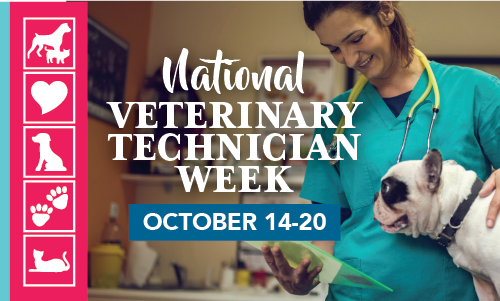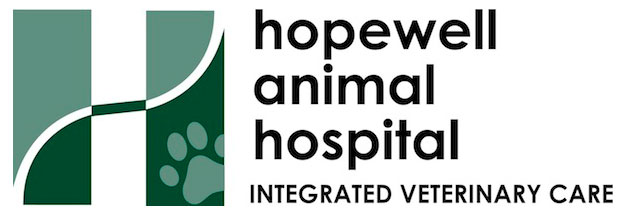
The Role of the Veterinary Technician A.K.A the Veterinary Nurse
Just last week we celebrated Veterinary Technician Week. We want to use this column to give you some insight into the role of the veterinary technician and what it takes to become one. We also want to say thank you to the great technicians at Hopewell Animal Hospital and throughout the United States.
Veterinary technicians are the unsung, unnoticed members of the veterinary team. They are the real front-line care givers and are an invaluable part of the entire team.
First, let’s take a look at the training required to become a technician. Veterinary nurses are required to take a minimum of 2 years of college course and some will take a full 4 years and complete a bachelor’s degree. Their course work is as varied as the job requirements. Course work will include math, pharmacology, parasitology, surgical nursing, laboratory (rodent) medicine, anatomy and physiology. Some schools require their students to take courses to care for non-human primates, and most schools have a farm animal rotation. During school, students are required to complete up to 200 hours of practical, supervised care in a veterinary hospital. After completion of their coursework, technicians then must sit for a state licensing examination. After licensure, technicians, like other licensed professionals, are required to complete continuing education classes on an annual basis. But for some, this may not be enough, recently, certification and specialty training has become more widespread. There are specialty veterinary nurses in surgery, dentistry, medicine and critical care. Additionally, some technicians go into management a pursue a certification in Veterinary Practice Management this requires a 4-year degree and 3 years of training plus a lengthy certification examination.
So where are veterinary technicians? Of course, veterinary nurses can be found in small animal hospitals, but many also find employment at large animal practices and universities. Some go on to become professors at schools teaching veterinary technology, other technicians may work for the government in research or in pharmaceutical companies in technical support. Some are employed by animal poison control hotlines.
The day of a veterinary technician can be extremely varied, for example technicians will be monitoring anesthesia, assisting in surgery, performing dental care, taking radiographs or ultrasound, obtaining blood samples and placing intravenous catheters. They will be the front line professional to triage sick and injured pets. All of this is in addition to their role in caring for sick patients in the hospital and providing comfort to the families of the pets in the hospital.
We greatly appreciate our veterinary technicians; we could not effectively perform our job without their help and support
The next time you visit our hospital, please thank our technicians. They are really the backbone of our team and are committed to provide the very best care for your pet.
